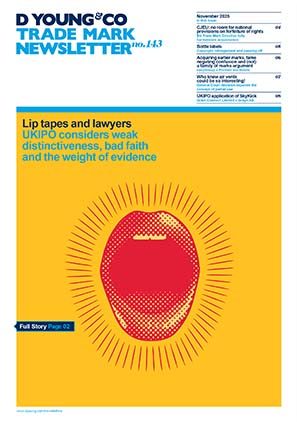Trouble in paradise (island)? No double territoriality requirement for EU trade mark use
In a decision regarding the partial revocation of Kerzner International’s ATLANTIS European Union Trade Mark, the EUIPO’s First Board of Appeal found that the trade mark had been used within the EU in respect of various hotel-related services despite the fact that the proprietor’s hotels were physically located in Dubai and the Bahamas.
Following Binter Cargo S.L.’s revocation request (submitted on grounds of non-use under article 58(1)(a) of the EU Trade Mark Regulation), the Cancellation Division partially revoked the ATLANTIS trade mark in respect of all goods and services in classes 16, 28, 36, 39, 41 and 44 as well as some class 43 services (including providing hotel accommodation; providing restaurant, bar and hotel services). The trade mark remained registered in relation to arranging accommodation in tourist centres; travel agency services for hotel reservations; accommodation reservations and restaurant bookings in class 43.
The Cancellation Division held that, by definition, it cannot be possible for EU customers to genuinely use services linked to restaurants and hotels if they can only benefit from using those services after physically leaving the territory of the European Union. The Cancellation Division considered that whilst the proprietor had indeed engaged in marketing activities in the EU with the explicit aim of concluding contracts with customers domiciled in the EU (and also operated a website specifically targeting EU-based customers which contained various European language and currency options), this was not sufficient to demonstrate genuine use of the trade mark in respect of the hotel-related services. The Cancellation Division did not, however, apply this reasoning to the travel agency booking services, explaining that, in order to book such services, it is necessary to do so far from the place where the services are in the broad sense produced, since users of these services are those wishing to travel outside the European Union.
The proprietor sought to annul the decision in its entirety. In relation to the revoked class 43 services, it argued that the Cancellation Division had erred in law by effectively introducing a “double territoriality requirement” that could be found neither in legislation nor established case law.
The First Board of Appeal agreed. Pointing to Article 15(3) of the TRIPS agreement as well as the Hiwatt case (T-39/01), it held that no territorial requirement for the provision of the goods or services themselves is imposed in EU law. Genuine trade mark use does not primarily concern the place where services are supplied, but the place where the trade mark is used for those services, and such use should be ascertained by the proprietor’s intention to create or maintain a market for the goods and services covered by the trade mark. The Board of Appeal also noted that if hotel services are advertised and sold to a sufficient extent to customers domiciled in the EU, it is not relevant where those services are in fact physically supplied. Since the class 43 services in question were sold via travel agents based in the EU to consumers domiciled in the EU, the relevant market in this case was deemed to be the EU market for accommodation provided outside of the EU.
The Board of Appeal also drew attention to the EUIPO’s guidelines which state that advertising and marketing may be relevant acts of use where goods and services such as holiday accommodation are available abroad. The Board of Appeal pointed out that the distribution of goods and services via the Internet has created a new method for their provision which cannot be neglected, and that the tourism sector is particularly active online, with the Internet being the main advertising channel for such services.
Ultimately, the Board of Appeal considered that the Cancellation Division had indeed erred in law in relation to the remaining class 43 services, and partially upheld the application for revocation.
The appeal in relation to the remaining goods and services was however dismissed since Kerzner had not submitted sufficient evidence to prove genuine use in relation to these. As the Cancellation Division correctly pointed out, the mere fact that these services were available in the proprietor’s hotels did not mean they had been sold to customers in the EU.
This decision provides a useful explanation of the territoriality aspect of the genuine use requirement, which may be of particular interest to non-EU undertakings wishing to enforce their trade mark registrations in the European Union.
Case details at a glance
Jurisdiction: European Union
Decision level: Board of Appeal
Parties: Kerzner International Limited and Binter Cargo SL
Date: 14 May 2021
Citation: R 1264/2020-1

